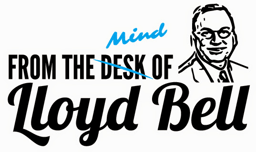The Difference Between Price and Value in Business Valuation

When evaluating a business, the terms "price" and "value" are often tossed around like beads at Mardi Gras. However, they represent distinct concepts that play crucial roles in business valuation. Understanding the difference between price and value can help investors make more informed decisions and business owners develop better strategies for growth and exit planning. Plus, it'll make you sound really smart at parties.
What is Price in Business Valuation?
Price in the context of business valuation is the actual amount of money that a buyer is willing to pay and a seller is willing to accept for the business. This is an objective figure, usually determined through negotiations at the time of the sale.
Factors Influencing Price:
- Negotiations: The skills and strategies of the negotiating parties can affect the final price.
- Comparable Sales: Prices of similar businesses recently sold in the market can set benchmarks.
- Urgency: A seller's need to sell quickly or a buyer's eagerness to acquire can influence the price.
What is Value in Business Valuation?
Value refers to the intrinsic worth of a business based on its ability to generate future cash flows, its assets, its market position, and other qualitative factors. Value is more subjective and often varies depending on who is assessing it. For instance, a strategic buyer might value a business higher due to potential synergies, while a financial buyer might focus on cash flow and profitability.
Components of Value:
- Earnings Potential: The ability of the business to generate consistent and growing profits.
- Assets: Tangible and intangible assets, including real estate, intellectual property, and brand equity.
- Market Conditions: Economic cycles, industry trends, and market demand can significantly impact the value of a business.
- Market Position: The business’s competitive advantage, market share, and reputation.
- Growth Prospects: Future opportunities for expansion and revenue growth.
- Management Team: The quality and experience of the business’s leadership.
While price is a fixed number representing the transaction amount, value is a multifaceted concept that encompasses the business’s fundamentals and future potential. By considering both price and value, investors and business owners alike can make decisions that maximize returns and achieve strategic goals. Plus, you’ll have some impressive insights to share at your next cocktail party. Cheers to that!
At Meaden & Moore, our experts specialize in comprehensive business valuations that take into account all facets of your business. Whether you're preparing for a sale, considering an acquisition, or planning for future growth, we provide the insights and expertise needed to make informed decisions. Contact us today to learn how we can assist you in understanding and maximizing the value of your business.
Tell me what's on your mind. Write me at lbell@meadenmoore.com or try the old fashioned way by calling 216-928-5360.
Lloyd W.W. Bell III is Director of the Corporate Finance Group at Meaden & Moore. He has over 30 years of experience in financial management.







